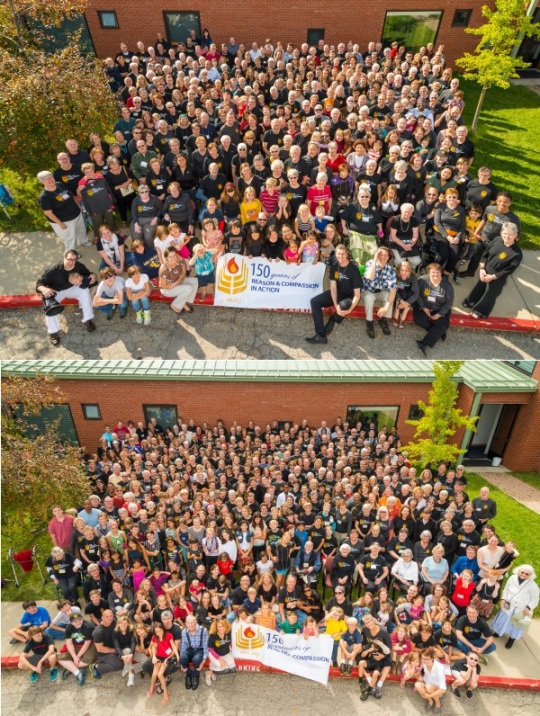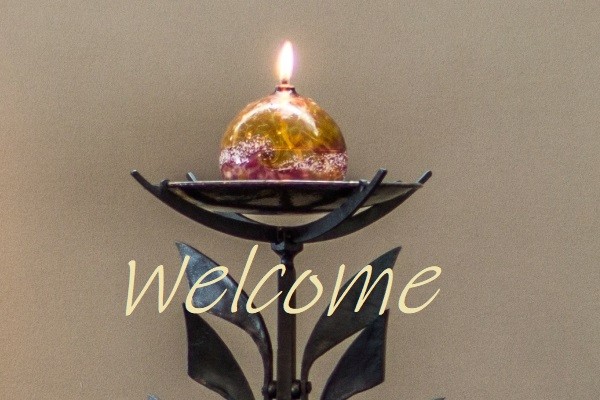WELCOME!
... To a faith with the power to transform lives and change the world. ... To a faith that can sustain and enrich the next chapter of your life.
Highlighted Events
Reflective Conversations FAQ
Reflective Conversations on Our Ministries: FAQ
- What is the Reflective Conversations program about?
The Board of Trustees appointed a team to develop a program to gather reflective feedback from our Congregation. This program of Reflective Conversations (based on the book, Completing the Circle, by David R. McMahill) is the result of that effort. It is designed so that we can hear from you in an organized way. We write down, analyse and synthesize your comments as gathered in each conversation. Those data are shared with the Board, the appropriate staff and program leaders so your experiences can guide future improvements. At least once each year the Congregation receives a report at a Congregational meeting updating them about the Reflective Conversations that have been held and what we heard from you.
- Why are we doing this now? Is there some problem I don't know about?
No, this program was not undertaken to address any specific problem in our ministries. Finding a good method for getting feedbakc on our ministries had been on the Board's radar for a long time. It is intended to help us do an even better job of what we are already doing well. - How does it work?
Approximately 10 – 12 people gather to reflect on and share their personal experiences based on their participation in our various ministries. When the group meets, members are given a set of questions and allowed time to reflect on their personal experiences relative to those questions. Each person is given time to speak about those experiences. Trained facilitators lead the groups and record notes. Those notes are summarized and shared with the program leader (who will be in attendance) and with the Board of Trustees. Final results are shared with the Congregation at a Congregational meeting, and are used to influence future planning. - For which groups are Reflective Conversations be held?
In past years we have reflected on Sunday Worship, Interweave, Stewardship, Chalice Singers and Chalice Circles. We are currently performing reflective conversations on programs within Spiritual Growth and Development. - How are group members selected?
The participants for each group are selected at random from the list of members when the whole Congregation participates in the activities (such as Sunday Worship or Stewardship) or from active participant lists for each program ministry. - Why was this particular method chosen to obtain feedback about our ministries and programs?
It has been shown that formal assessment tools used in business, education, not-for-profit companies, etc., do not function very well for assessment of church ministries. The method we are using was designed specifically for obtaining first-hand feedback related to personal experience of religious ministries and programs
Reflective Conversations
Reflective Conversations to Enhance Our Programs
 The health of our Congregation, as with any organization, depends greatly on how effectively we communicate with each other – on how well we listen to each other. As our Congregation gets larger and larger, we know that we need to provide for effective reflection and feedback for the Board and for the staff and program ministry leaders.
The health of our Congregation, as with any organization, depends greatly on how effectively we communicate with each other – on how well we listen to each other. As our Congregation gets larger and larger, we know that we need to provide for effective reflection and feedback for the Board and for the staff and program ministry leaders.
Several years ago, the Board appointed a team to develop this program of Reflective Conversations (based on the book Completing the Circle, by David R. McMahill) so that we can hear from all congregants in an organized way. Congregants are invited to take part in a conversation and the team leaders write down, analyze and synthesize comments gathered during each conversation. The data are shared with the Board of Trustees, and the appropriate staff or program leaders to guide future improvements. At least once each year, the team gives the Congregation, a report about the Reflective Conversations that have been held during the year and what has been learned.
Who is planning the Reflective Conversations?

Team members are Fran Dew, Dixie Hibner, Becky Hoort, Carolyn Madden, Jim Lee, Erik Stalhandske, Cathy Olson, and Ginny Preuss. Tricia Mooney is the liaison to the Board.
You can read the most recent report and brief fact sheet about Reflective Conversations.
If you have questions, please email them to This email address is being protected from spambots. You need JavaScript enabled to view it. or review the FAQ.
Conversations that Matter
Over a period of three days in late October, over 90 members of the congregation took part in meetings called “Conversations that Matter.” The conversations were the idea of the Stewardship Committee and were designed to heighten congregational awareness of our past and potential successes. The theme of the Stewardship Drive was "Imagine what we could do ..." The purpose of the "Building Our Vision" conversations was to provide a structured setting for congregants to share their aspirations and to make the connection between the pledge drive and our ability to realize our dreams. An underlying assumption was that decisions about how we allocate our money, time, and staff resources should be linked to the values and goals of our members.
We believe that this process was effective in bringing together a good sample of the active members of the congregation, in providing those who attended with a worthwhile experience and in developing information which would be useful to anyone who has thoughts about providing leadership within the congregation. In this report, we will first describe the process of “Conversations that Matter” and then summarize the results.
In our reading of this material we identified three general themes. The first of these is a spirituality theme, of which religious education is a significant component. As a congregation, we appear to have a vision of ourselves as spiritually engaged, enlightened people who are both satisfied and excited by our church experiences. This is reflected in ideas about worship services, religious education and community gatherings such as “Friday Night Live.” A second theme is one of outreach, towards social justice, environmental action and towards others who would join us if they knew more about us. A third theme could be described as a “multiple values” theme or an “integration” theme. We have a sense that our congregation is uniquely able to help us bring our spirituality and our desire to work for a better world together. For example, we are able to meditate with others, then join those same folks in putting up a house for a homeless family which then draws the attention of someone who sees our congregation as a place where she might feel engaged.
As we concluded each of the “Conversations that Matter” sessions, we were urged by several of those in attendance to “do something” with the results. This report is an effort to do just that. As stated earlier, we have already shared the raw output with the senior minister. Since then, we have tried to put the raw data into a form which could be useful. We decided to write a report for the board, believing that our governance vision suggests that this is the kind of information which the board should be receiving to aid in its mission. We hope that the report will have wider circulation and that it can serve to document what we did, how we did it and what we found out about ourselves.
Respectfully submitted,
Connie McGuire and Tom Darnton
About Us
 Our "giant selfies"...On Sept 28, 2014 we gathered the congregation after each Sunday service to begin the celebration of our 150th anniversary. [photos by Steve Kuzma]Welcome to our congregation!
Our "giant selfies"...On Sept 28, 2014 we gathered the congregation after each Sunday service to begin the celebration of our 150th anniversary. [photos by Steve Kuzma]Welcome to our congregation!
The First Unitarian Universalist Congregation of Ann Arbor (UUAA) has been a vital liberal religious voice in the Ann Arbor community since 1865.
We are an intentionally multi-generational, multiracial, multicultural religious community of over 600 members who worship together, work together, laugh together, and nurture our children with a UU perspective of our World.
We gather to encourage and inspire each other’s individual spiritual journeys, to honor and care for the natural world around us, and to join forces in furthering social justice in the Ann Arbor area and the wider world.
Visit Us --
We invite you to visit a Sunday worship service where you can fill out a visitor card and sign up to receive our newsletter if you wish. Newcomers are always welcome.
Or, start your visit online. Please explore this web site to find out more about our very active and vibrant UUAA community.

 NEW TO UUAA?
NEW TO UUAA?

